ISU Speech and Language Clinic, Meridian
CONTACT US:
Phone: (208) 373-1734
Fax: (833) 390-1293
Address:
ISU Meridian Health Science Center
1311 E. Central Dr.
Meridian, ID 83642
Directions:
HOURS:
Monday - Thursday
8:00 AM - 5:00 PM
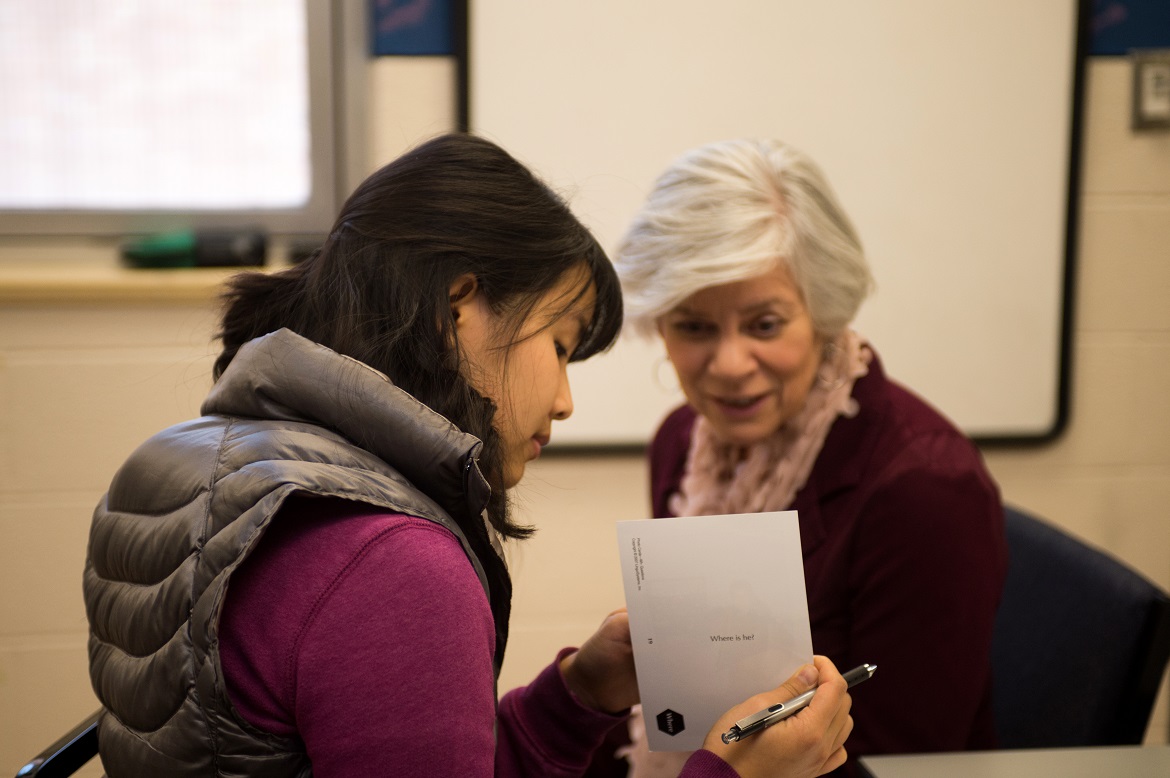
ISU's Speech and Language Clinic offers evaluation and treatment of children and adults in the following areas: Articulation, Receptive and Expressive Language, Voice, Fluency/Stuttering, Alternative and Augmentative Communication (AAC), Pragmatic (social skills), and Accent Reduction Communication difficulties following stroke or traumatic brain injuries.
Idaho State University recognizes that our mission is to care, support, and educate individuals and families affected by health conditions that diminish their quality of life. We acknowledge that individuals may experience discrimination in the healthcare system, which can adversely affect their health outcomes. We recognize that both conscious and unconscious discrimination occur. Overt and conscious discrimination is not tolerated. Unconscious or unintentional discrimination need to be identified, challenged, and addressed. We believe everyone has the right to be healthy and have access to the resources they need.
We strive to achieve the following commitments to our colleagues and our patients:
- Goal 1: We do not discriminate on the basis of age, race, ethnicity, religion, culture, language, physical or mental disability, socioeconomic status, sex, sexual orientation and gender identity or expression.
- Goal 2: All patients receive the highest level of care possible delivered in a patient and family friendly approach using evidence-based medicine.
- Goal 3: We recognize racism, not race, as the cause for healthcare disparities and therefore will examine our healthcare treatment plans for bias.
- Goal 4: We will track information on factors that create disparities as they relate to health outcomes to better identify how we may actively seek to eliminate such disparities in healthcare.
- Goal 5: We intend to improve the diversity of our workforce to reflect the community we serve.
- Goal 6: We commit to listen, learn, and seek to understand in order to create impactful and sustainable positive change.
- Goal 7: We will recognize and reward practices that promote health equity.
Definition of health equity: The state in which everyone has a fair and just opportunity to attain their highest level of health. https://www.cdc.gov/
While the terms equity and equality may sound similar, the implementation of one versus the other can lead to dramatically different outcomes for marginalized people: Equality means each individual or group of people is given the same resources or opportunities. Equity
Services
Services are performed by graduate student clinicians and supervised by SLP certified and licensed clinical faculty. Our program is a semester based program offering services from September through December and January through May, and specialty clinical programs in the summer months (traditional national holidays are observed).
Services provided for adults include evaluation and treatment of:
Aphasia
Aphasia is a language disorder resulting from an injury to the brain, most often in the left hemisphere that affects all language modalities. Aphasia is not a single disorder, but instead is a family of disorders that involve varying degrees of impairment in four primary areas:
- spoken language expression
- spoken language comprehension,
- written expression, and
- reading comprehension.
A person with aphasia often has relatively intact memory and executive function skills, although these and other cognitive deficits may co-occur with aphasia. Sensory deficits such as auditory and visual field deficits may also be present.
Signs & Symptoms may include:
- Difficulty finding words
- Speaking in single words
- Omitting smaller words like “the”, “of”, and “was”
- Putting words in the wrong order
- Making up words
- Difficulty understanding others
- Lacking awareness of others
- Difficulty comprehending written material
- Difficulty writing or copying letters, words, and sentence
Dementia
Dementia is a syndrome resulting from acquired brain disease and characterized by progressive deterioration in memory and other cognitive domains (e.g., language, judgment, abstract thinking, and executive functioning). The cognitive decline associated with dementia affects an individual's ability to comprehend and produce linguistic information. Additionally, behavioral problems that develop as a result of the neuropathology (e.g., paranoia, hallucinations, and repetitiousness) may interfere with communication.
Signs & Symptoms may include:
- Easily distracted
- Episodic memory deficits
- Difficulty multi-tasking and handling complex tasks
- Inability to recognize familiar people
- Difficulty recalling names of family and friends
- Inappropriate behavior
Dysphagia
Dysphagia is a swallowing dysfunction where it takes more time and effort to move food or liquid from your mouth to your stomach. Dysphagia may also be associated with pain. In some cases, swallowing may be impossible.
Occasional difficulty swallowing, which may occur when you eat too fast or don't chew your food well enough, usually isn't cause for concern. But persistent dysphagia may indicate a serious medical condition requiring treatment.
Dysphagia can occur at any age, but it's more common in older adults. The causes of swallowing problems vary, and treatment depends on the cause.
Signs & Symptoms may include:
- Difficulty swallowing
- Pain during swallowing
- Drooling
- Unable to swallow
- Being hoarse
- Feels like food is stuck in your throat
- Regurgitation
Traumatic Brain Injury
Traumatic brain injury (TBI) is a form of brain injury caused by sudden damage to the brain. The effects can range from physical, sensory, cognitive-communication, swallowing and behavioral issues. These problems significantly impair the effected person's ability to live independently. The problems vary depending on how widespread the brain damage is and the location of the injury.
Signs & Symptoms may include:
- Difficulty thinking and understanding
- Aggression, impulsivity, and lack of restraint
- Dizziness, fainting, or fatigue
- Anger, anxiety, or apathy
- Nausea or vomiting
- Slurred speech or impaired voice
- Blurred vision or sensitivity to light
- Headache, seizure, or ringing in the ears
Voice Disorders
A voice disorder is an abnormal pitch, loudness, or vocal quality resulting from disordered laryngeal function and may cause pain or vocal fatigue. Voice disorders range from mild hoarseness to complete voice loss, and limit the effectiveness of oral communication.
- Hoarseness
- Chronic cough or excessive throat clearing
- Vocal strain or fatigue
- Loss of voice
- Reduced pitch range
Voice disorders can be caused by an injury resulting in paralysis of a vocal fold, an improper breathing pattern, or misuse of the voice. Voice disorders can also be due to medical/physical conditions or neurological in nature. The individual with a voice disorder may experience stress, withdrawal, and depression because of an inability to produce normal voice.
Signs & Symptoms can include:
- Hoarseness
- Chronic cough or excessive throat clearing
- Vocal strain or fatigue
- Loss of voice
- Reduced pitch range
Services provided for children include evaluation and treatment of:
Articulation
An articulation disorder is the production of speech sounds spoken with substitutions, omissions, additions or distortions that may interfere with intelligibility.
- Certain sounds are not produced but omitted or deleted (e.g., “cu” for “cup” and “poon” for “spoon”)
- One or more sounds are substituted (e.g., “dood” for “good” and “wabbit” for “rabbit”)
- One or more extra sounds are added or inserted into a word (e.g., “buhlack” for “black”
- A syllable is repeated or deleted (e.g., “dada” for “dad” or “wawa” for “water”
Stuttering
Stuttering affects the fluency of speech. It begins during childhood and, in some cases, lasts throughout life. The disorder is characterized by disruptions in the production of speech sounds (disfluencies). Most people produce brief disfluencies from time to time. For instance, some words are repeated and others are preceded by "um" or "uh." Disfluencies are not necessarily a problem; however, they can impede communication when a person produces too many of them.
Signs & Symptoms:
- Difficulty starting a word, sentence, or phrase
- Prolonging a word or sounds within a word
- Repetition of a sound, syllable or word
- Brief silence or pauses within a word
Receptive Language Disorder
This language disorder affects a child’s ability to understand what is being said to them. This usually is seen in children prior to age four. In most cases, children with receptive delays also have expressive language disorder. Children must be able to understand the spoken language in order to properly speak.
Signs & Symptoms can include:
- May not listen when being spoken to
- Inability to follow verbal instructions
- Inability to understand complicated sentences
- Language deficits
- Repeating words that are said to them (echolalia)
Expressive Language Disorder
This language disorder affects a child’s ability to formulate words, speak in complex sentences, and remember words. Most often, the child does understand verbal communication.
Signs & Symptoms can include:
- Limited vocabulary skills
- Improper use of tenses (past, present, future)
- Unable to speak in sentences
Apraxia
Childhood apraxia of speech (CAS) is a motor speech disorder. Children with CAS have problems saying sounds, syllables, and words. The brain has problems planning to move the body parts (e.g., lips, jaw, tongue) needed for speech. The child knows what he or she wants to say, but his/her brain has difficulty coordinating the muscle movements necessary to say those words.
Signs & Symptoms can include:
- Does not coo or babble as an infant
- Problems combining sounds
- Understands language but doesn’t talk
- Difficulty imitating speech
- Is hard to understand
Tongue Thrust
A tongue thrust occurs when the tongue pushes against the front teeth or protrudes through the teeth during swallowing and/orspeech, or while the tongue is at rest. It is commonly referred to as a reverse swallow and is normal during infancy and toddler stages, but should disappear by the time a child starts elementary school.
Signs & Symptoms can include:
- Articulation errors can include /s, z, t, d, n, l, sh/
- Orthodontic issues
- Mouth breather
- Messy eater
- Tongue visible during speech and/or swallowing
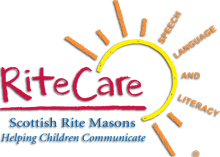
Augmentative and Alternative Communication (AAC)
AAC includes all forms of non-verbal communication that is used to express thoughts, needs, wants, and ideas. AAC includes facial expressions, body gestures, use of symbols or pictures as well as the written word. Many people with severe language deficits rely on AAC to communicate their needs. The following options are examples of AAC communication:
- Unaided Communication: Relies on the individual’s body to perform gestures, body language, and/or sign language.
- Aided Communication: Relies on additional tools to aid in communication such as paper and pencil, communication boards, and electronic speech devices that produce voice output.
Voice Treatment for Individuals with Parkinson’s Disease
The ISU Speech and Language Clinic Meridian is the recipient of a grant from the Parkinson Voice Project to support implementation of the SPEAK OUT!® and LOUD Crowd® therapy model developed by Parkinson Voice Project for the treatment of patients with Parkinson’s and Parkinson-plus syndromes. SPEAK OUT!® is the first step in the two-part therapy approach and typically consists of twelve individual speech therapy sessions. Upon completion of SPEAK OUT!®, each patient enters the maintenance phase of the therapy program, The LOUD Crowd®. This maintenance program consists of speech therapy groups to help patients maintain the strength of their voices. The LOUD Crowd® provides ongoing vocal practice, accountability, support, and encouragement. By participating in LOUD Crowd®, patients have shown to maintain their SPEAK OUT!® results for more than five years and counting.
We are currently accepting referrals for individuals diagnosed with Parkinson’s disease who are seeking Speech Language Pathology Treatment. Services also available via tele-practice in Idaho and Oregon. For more information regarding the Parkinson Voice Project visit www.ParkinsonVoiceProject.org.
Adult Swallowing Clinic
The ISU Adult Swallowing Clinic provides diagnostic, treatment, and consultation services for individuals with swallowing disorders resulting from a variety of issues including:
- Stroke
- Traumatic Brain Injury
- Progressive neurological disorders (e.g. Parkinson’s, Multiple Sclerosis, etc.)
- Head and neck cancer
- Difficulties following surgery to the face and/or neck
- Age related difficulties
- Coughing, choking, or difficulty swallowing for unknown reason
Pediatric Feeding and Swallowing Clinic
The ISU Pediatric Feeding and Swallowing Clinic provides diagnostic, treatment, and consultation services for families with children who are experiencing difficulties in feeding, including:
- Difficulty sucking
- Swallowing
- Chewing
- Children who do not feed themselves at appropriate ages
- Transition from nasogastric or gastrostomy feedings to oral feedings
- Neurological impairments
- Development delays that hinder oral feedings, abnormalities of the mouth and throat that affect eating, difficult transitions from breast-feeding to cup/bottle or pureed foods and behavioral feeding issues.
MIAP is a 1-2 week summer intensive communication treatment program especially designed to assist clients diagnosed with aphasia or other communication disorders and their families to improve the client’s quality of life. The MIAP program provides therapy five days a week. The program includes:
- 3 hours of daily individualized speech and language therapy
- 2 hours of daily small and large group speech and language therapy
- Small group activities designed to increase collaboration, connections, and stimulate communication
- NEW - Home education program training and materials will be provided
MIAP is designed to assist clients in targeting their communication goals. Across rehabilitation disciplines there is growing evidence to support intensive treatment as a leading treatment option to promote functional recovery, particularly for individuals with chronic aphasia. This intensive program will provide a range of services and opportunities for our clients as well as their communication partners.
Candidacy: MIAP clients are adults with all types of communication disorders, at varied levels of impairment. Adults who have had aphasia for a short time or for many years can benefit from the intensive program. Individuals with reduced tolerance for schedule changes, agitation or extreme fatigue would not qualify due to dynamic and intensive program demands. Caregivers do not need to attend unless the client is dependent care, however, group sessions for all interested communication partners will be available from graduate students in the counseling department throughout the program.
Program Dates: June 17 - June 21, 2024; June 24 - June 28, 2024 (9:00 AM - 2:30 PM)
Program Director:
Amy Hardy
(208) 373-1724
hardamy3@health.isu.edu
The summer pre-school program provides a structured environment that fosters speech and language skills as well as social-emotional, intellectual, and creative growth with developmentally appropriate activities for children with a variety of developmental disorders. The summer program operates Monday thru Wednesday for the month of July. The program accepts children 18 months to 5 years old.
Program Dates: July 8 - July 31, 2024 (M-W; 9:00 AM - 12:00 PM)
Program Director:
Amy Hardy
(208) 373-1724
hardamy3@health.isu.edu
An adventure in communicating awaits you! Join us for AAC Camp to increase expressive communication abilities and socialization of kids, teens, and young adults who use a speech generating device. The camp will feature movement, games, special events, music, and literacy. Participants much own a speech-generating device
Program Dates: June 3 - June 7, 2024 (9:00 AM - 12:00 PM)
Program Directors:
Anne Kuhlmeier (Campers)
kuhlmeia@slhs.org
Mary Van Donsel (Counselors)
vandmary@health.isu.edu
Make an Appointment
Patients are pre-screened and put on a waitlist for services. If you want to be considered for services or need to cancel an existing appointment, please call (208) 373-1734:
- Clinic Hours: Monday - Thursday, 8:00 AM - 5:00 PM
Consent Forms
Consent forms are traditionally sent via DocuSign to your email account. If you are unable to sign consent forms electronically, paper copies are also available for your convenience. Please print and return with you on the day of your appointment.
- Adult Consent Forms
- Pediatric Consent Forms
- Scottish Rite Scholarship Application (Pediatric)
- Notice of Privacy Practices
Parking
ISU provides free parking for clinic patients/clients:
- Clinic parking is outlined in yellow directly in front of the ISU Meridian Clinics' entrance.
- The parking area is located on the southwest side of the building facing I-84.
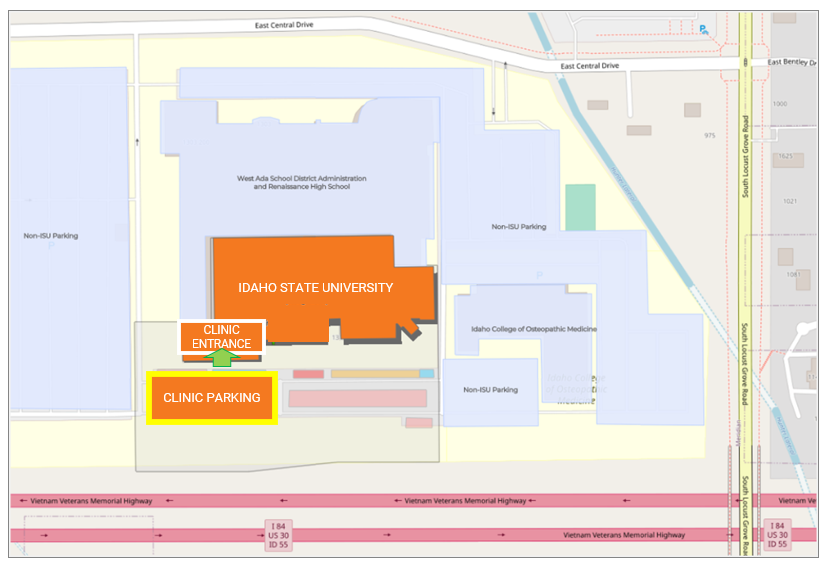
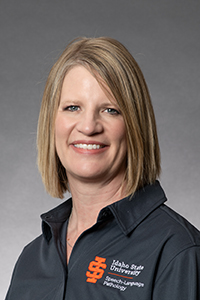
Amy Hardy, MS, CCC-SLP
Clinic Director/Clinical Professor/Online Director
(833) 390-1293
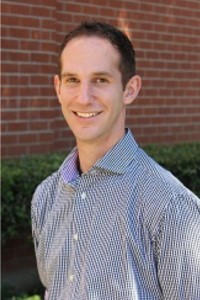
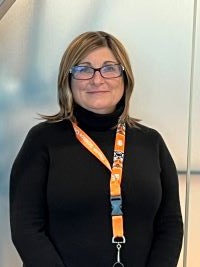
Tracy Garrison, MS CCC-SLP
Adjunct Clinical Professor
(833) 390-1293
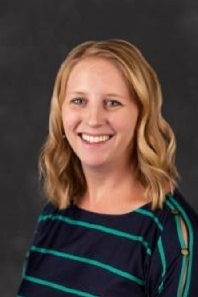
Jessi Hardy, MS CCC-SLP
Clinical Assistant Professor
(833) 390-1293
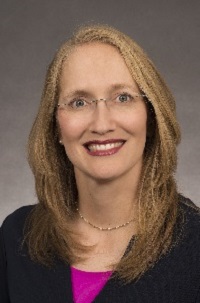
Mary VanDonsel, MSR, CCC-SLP
Clinic Coordinator/Clinical Associate Professor/Undergraduate and Post-Bacc Program Director
(833) 390-1293
Staff
- McKenzie Gumb
Patient Care Coordinator
(208) 373-1734
mckenziegumb@health.isu.edu
Billing
- Clinic Fees: The ISU Speech and Language Clinic is a semester based program and charges a flat semester fee. Scholarships funded by the Scottish Rite Foundation are available for pediatric patients. Please contact the billing office at 208-373-1743 for more information about our fees.
Payment
- Semester Billing: Payment for the semester is due the first day of clinic. Payment arrangements can be negotiated based on individual needs. . We accept cash, checks, debit/credit cards and online payments at the link below.
Donations
- Our program supports our adult community members who are underserved or have exceeded their therapy benefits. To help offset our costs, we have set up the "Communicate Clearly Fund". This scholarship fund will help adults with limited resources. If you would like to donate to the scholarship fund, give here:
No Surprise Billing Act
Masters of Speech Language Pathology Program
The Masters of Science degree in Speech Language Pathology at Idaho State University is the only accredited program in the state of Idaho. Dedicated to enriching the lives of those with communication needs, the program has a strong clinical focus which provides graduating students with the tools to work in educational, medical, or other clinical settings with children and/or adults with communicative needs.
American Speech-Language-Hearing Association (ASHA): ASHA is the national professional, scientific, and credentialing association for more than 173,070 members and affiliates who are audiologists; speech-language pathologists; speech, language, and hearing scientists; audiology and speech-language pathology support personnel; and students. Audiologists specialize in preventing and assessing hearing and balance disorders, as well as providing audiological treatment, including hearing aids. Speech-language pathologists identify, assess, and treat speech, language, cognition, voice, and swallowing disorders.

